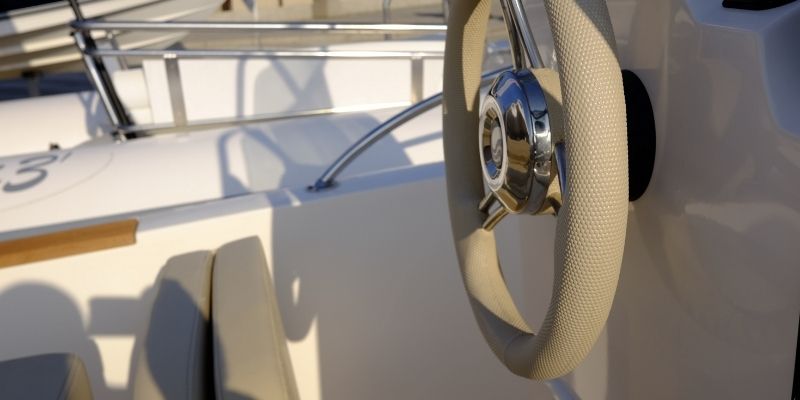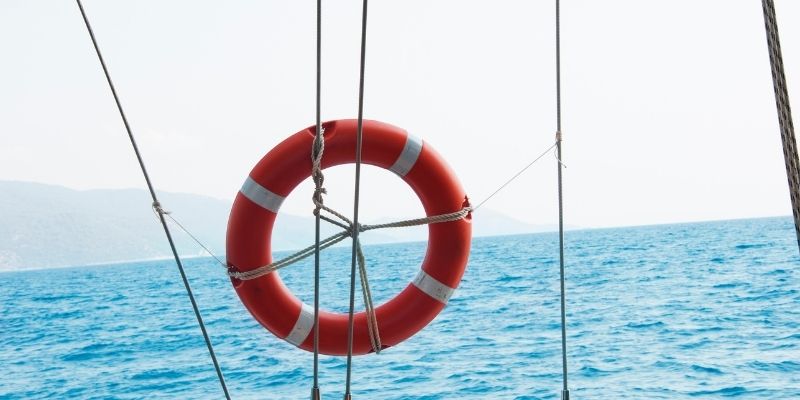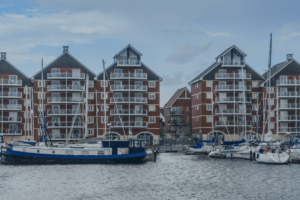The History Behind the Folly of Being Proud
In fact, neither version of this saying provided above is exactly as the proverb was originally written. The line comes from the Bible with the current King James Version text giving it as: “Pride goeth before destruction, and a haughty spirit before a fall,” which is just a tad easier to read and understand than the Wycliffe's version of 1382: “Pride goth befor contricioun, & befor falling the spirit shall ben enhauncid.”
Early users of the proverb spoke of pride going before something more calamitous such as contrition or destruction or shame. These days the word fall is used, meaning downfall or failure. When did people start saying 'pride comes before a fall'? It is first found in the Coverdale Bible of 1535: “After pryde commeth a fall, but a lowly sprete bryngeth greate worshipe.”
They still weren’t doing very well with their spelling and it took until 1810 for the modern wording of 'pride comes before a fall' to appear which is first found in England, printed in An Exposition of the Old Testament, by the English theologian John Gill. Gill died in 1771 and the expression was probably known in its current form from before then, although it may be that the 1810 publication altered Gill's original wording.
Back to the proud boat owner and the reason for this blog. Whilst it goes without saying that all boat owners will be extremely proud of themselves and their new boat, a fall or the destruction in any way of your boat can be avoided by being careful. That comes about ensuring that you have all the training and knowledge that a boat skipper should have, that you maintain and take proper care for your boat, and that you are genned up on rules, regulations and safety at sea.
Below we provide you with some highlights and tips to start you on your way.
Steps to Being a Proud and Careful Boat Owner
Education and Training (Manoeuvring & Navigation)

As far as education and training are concerned, look no further than our very own Royal Yacht Association (RYA). As stated in the introduction on their website:
“Welcome to the world’s leading training programme for leisure and professional boaters. Our internationally renowned training schemes steer 250,000 yacht sailors, powerboaters, small craft leisure boaters, windsurfers and canal boaters towards confident and successful boating every year. So whether your end goal is to spend more quality down time on the water, to travel, to compete, to work, or to advance your career; there’s a course for you.”
Yes, in the field of boating education the RYA are undoubtedly the experts and it is strongly recommended that you at least scan their website and read what they have to say, and look at the courses that they have on offer.
Launching and Recovery of Trailer Boat
This is one of those areas where it is a good idea to swallow our pride, do some training and get some practice in before heading off somewhere with our boat on a trailer. If you are of the opinion that it seems easy and there’s nothing to it, here’s a little test for you: jump behind the wheel and reverse the trailer and boat round a corner and into a driveway. We’ll pop in for a visit in a few days’ time to see how you’re getting on and wait until you do it for real down at the slipway. For a brief moment in time you’ll get to know what it feels like to be a celebrity and be in the limelight, on the red carpet and with the eyes of the world boring into you.
This is only one of the factors involved in towing and trailering your boat. There are some excellent tips and instructions to be found at the Discover Boating site. Here you will find help with:
- How to tow a boat – such as: preparing the tow vehicle, following a pre-trip checklist, getting your boat off and back onto the trailer, and more.
- How to backup (reverse) a boat trailer – such as: start with vehicle and trailer in alignment, make small steering adjustments, the trailer will swing in the opposite direction to where you steer, and more.
- Launching a boat – tie downs, ropes, drain plus, incandescent lights, and more.
- Retrieving the boat back onto the trailer – trailer depth, ropes, winch, and more.
- Basic boat trailering (driving) tips – safe following distance, mirrors, smooth and steady, wide turns, and more.
Safety
Safety gear (such as life jackets, paddles, horn, signal flares, etc.) should always be included during any boat purchase. Whether you’re using your boat for fishing, wakesurfing, skiing, diving, day cruising or overnighting, remember to pack essential safety gear. If you keep it onboard, inspect it periodically and keep it in good working order.
Below we provide a few suggestions on essential and should have items:
5 Essential Safety Equipment Items for Your Boat:
- Life jackets and wearable personal flotation devices (PFDs) - for each person on board, and for a skier or wake surfer behind the boat, and children under 12 years wear them at all times on a moving boat.
- Throwable flotation devices - you need at least one floating device that you can throw to an individual in the water in case of trouble. Some of these items come with a line attached so you can pull a person closer to the boat and then get them out of the water.
- Fire extinguishers – there are different types and requirements for different sizes of boats. And ensure that you and your family and guest know how to operate it.
- Visual signalling devices – again these can come in a variety packages and there are different requirements by size of vessel. These include flags, orange or white smoke and aerial light flares, and night time signals such as a strobe lights.
- Sound signalling devices – these are especially effective in fog, such as portable or fixed horns and whistles.
10 Suggested Safety Equipment Items for Your Boat:
Depending on the type of boating you do and where you do it, some of these may be required or only recommended items. Either way, you can pack most of these aboard even the smallest of boats.
- Medical kit for cuts, scrapes, seasickness or small emergencies
- Anchor with line to hold your boat in place while you wait for help to arrive
- Bailing device or bucket to dewater and stay afloat
- Oars or paddles if the engine quits
- VHF radio to call for help
- Knife to cut a line around a fouled propeller
- Snorkel mask to inspect what’s going on under the boat
- Heavy duty flashlight
- Skier or diver down flag
- A way to get weather updates because things can change quickly even on a lake
Having said our piece let’s now turn to the experts in this field, the Royal National Lifeboat Institute (RNLI); here’s a quote from them:
“Heading down to the coast or out on the water is a great way to have fun and stay active. But, if you’re not careful, it’s a lot easier to get into trouble in the water than you might think. Conditions can change quickly and, if you’re not prepared, you can easily get caught out.
The RNLI are sea safety experts. We’ve collected together all our advice in one place, so you can find the information you need to make the most out of your time at the coast. Whether you’re going to the beach, exploring the coast, or venturing out onto the water, we have the sea safety advice to help you stay safe.
We’ve put together a comprehensive guide to coastal safety, so you know what dangers to look out for when you head to the coast. Thinking of going kayaking? Angling? Surfing? Our sea safety experts have created activity guides covering a whole range of watersports and hobbies, so you can prepare yourself properly for the challenges of your chosen activity. There’s even advice for your dog!”
For safety on the water and at sea you need look no further than the RNLI.

Maintenance for the Proud and Careful Boat Owner
Boat maintenance is quite similar to automobile maintenance. There are a few basic items that require constant maintenance, which the owner normally takes care of, and a few items that require maintenance at regular intervals which most people leave to the professionals.
Here we provide a basic boat maintenance checklist and then below that we cover separately three of the most important maintenance routines, being winterising, antifouling, and replacing anodes.
The basic checklist would include the following items:
- Engine(s)
- The boat’s hull (bottom) and topsides
- Electrical systems
- Plumbing and heating, ventilation & air-conditioning (HVAC) systems (in larger boats)
- Moving parts (like hinges, tracks, and zippers)
- Canvas and upholstery
Not very long ago this list would have been much longer with many boats being of wooden construction. However, even though most modern boats are fiberglass and aluminium the most basic maintenance tasks of simply keeping things clean and well-lubricated still apply.
Regular preventative maintenance not only keeps you feeling proud of your boat, but also ensures that everything stays in good working order thus providing greater safety when on the water. It is good practice even to set up a structured preventative maintenance routine for all parts of your boat according to the regularity against which they need to be checked and maintained. These would be colour coded cards, or lists, of daily (or every time you go out on the water), weekly, monthly, quarterly, bi-annual, and annual checks.
Preparing for Winter
Similar to the maintenance routines for your boat, when it comes to winterising there are certain aspects which the boat owner can do themselves, or here at Burton Waters we are well versed and practiced at doing this for you.
Here are a few tips on what should be done if for instance you have your boat on a trailer at home, and you are going to tackle this yourself:
- Start by prepping your engine; ensure all water has been drained and removed.
- Apply corrosion protection to your engine.
- Consult your owner's manual for specific instructions, and complete fogging, if needed.
- Add a fuel-stabilizing additive to your fuel system; then run the engine.
- Change your engine’s fuel filters and any fuel/water separators in the system.
- Drain your boat's freshwater plumbing systems (sinks, tanks, and heads).
- Add antifreeze to your plumbing systems.
- Ensure water is removed from all additional systems (raw water washdowns, livewells, bilge pump, etc.).
- Remove drain plugs.
- Cover your boat or place it into winter storage.
Ironically, it’s water that poses the most danger to your boat during the off-season. Freeze-damage is the biggest potential problem, but water in and on your boat can also promote winter-time mould and mildew growth, and corrosion. So, as you consider all of these tasks, remember that your main goal is to keep out water and moisture to the greatest extent possible.
Antifouling
Antifouling is a paint used to protect the parts of the boat that are below the waterline and prevent the growth of aquatic organisms on the hull, called fouling. Without this paint the hull can deteriorate, slow the boat due to the increased drag, thus requiring more engine power and increases fuel consumption. Excessive growth has been known to cause a fuel efficiency drop of as much as 50%.
A few key tips for preparing the hull and applying antifouling are:
- Lightly sand the hull with a fine grade abrasive to promote the adhesion of the next application. Next degrease, rinse, thoroughly dry and ensure the hull is dust-free.
- Comply with the drying times indicated by the manufacturer before launching, these will vary according to the prevailing temperature.
- Do not apply antifouling too long before the launch, not greater than 3 months. Paint oxidises more quickly in contact with air and will lose its mechanical properties.
A key question that boat owners will ask is whether you need hard or eroding antifouling? Hard antifouling doesn’t really wear, but abrasive material in the water such as silt and sand may lead to a very minor reduction in the film, so it is good practice to consider that it has a service life of between 10-12 months, if the boat is used regularly.
Eroding antifouling, also known as soft or ablative antifouling, slowly erodes in seawater eventually leaving little or no antifouling on your hull. This is great for those who prefer a low maintenance option, as generally speaking there is far less accumulation of old paint on the hull after each season.
Replacing Anodes
Galvanic corrosion affects the majority of boats. When you have two dissimilar metals, such as stainless steel and bronze, the water will act as an electrolyte and the less noble of the two metals, the bronze, becomes an anode and will begin to corrode. If this is a seacock, it could sink your boat. What anodes do is to behave as the less noble metal thus protecting the other metals from corrosion.
Anodes only offer protection to metal they are electrically connected to. This is called bonding. It needs to be either direct physical contact, or connected by a wire inside the boat.
When you take your boat out of the water, you are looking for good amounts of corrosion on the anode, which means it is working. No corrosion means you have a problem with bonding. If it has corroded more the 50%, however, the anode isn’t big enough and you’ll need to replace it with a larger one.
Generally speaking, anodes should be replaced when they appear to be half their original size. There are many factors that determine how long your anodes will last. If you use the boat longer or if you stay in the water year-round, you will have to change your anodes more frequently.
Changing anodes is again another speciality of ours here at Burton Waters. Please contact us and allow us to take care of your boat for you.



